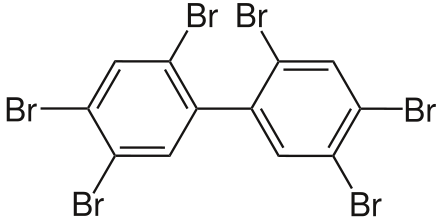People ban a chemical mainly because or their toxicity and hazards. If they’re released to the environment from a drum, or bottle, they doesn’t always expose us. But when we come in contact with it, by breathing, eating, or drinking, it might be hazardous for us. Along with the other factors such as the dose, the duration, and how is the contact, they will create a specific effects for our body. Not just for us, they can also be toxic for the environment. Such as, causing pollutions, contaminating the animal feed, the aquatic life, and so much more.
Due to that, in China, they ban, restrict, or even strictly prohibit those toxic and hazardous chemicals from import and export. Those are included in the Catalogue of Commodities Prohibited from Import (The 6th Batch) and the Catalogue of Commodities Prohibited from Export (The 3rd Batch) by the Ministry of Commerce, the General Administration of Customs, the State Environmental Protection Administration of China in 2005.
So, here are the list of toxic chemicals banned or severely restricted in the PRC (People’s Republic of China):
1. Cyhexatin
Cyhexatin is an almost odorless white crystalline powder. It is incompatible with strong oxidizing agents like copper, gold, platina, and so on. It does toxic to aquatic organisms nor human, because it is include as organotin chemical that is high bioactivity.
Organotin chemicals are chemicals compound that made of tin with hydrocarbon substituents. With these toxicity, cyhexatin can cause lots of effects, such as eye irritation, skin irritation and much more signs that can caused by cyhexatin.
2. Fentin Hydroxide
Like the other banned and restricted chemicals compound in PRC, fentin hydroxide also come with white christalline powder and nearly odorless. Classified in Group B2 probable human carcinogen, because fentin hydroxide contain of three ethyl groups.
3. Triethyltin
With formula C16H15Sn, It is highly toxic, It can leads to cerebral edema, nausea, vomiting, headache concentration loss, even death because it is also classified into organometallic.
4. Toxaphene
When we inhaled or ingested Toxaphene in a high doses, which is more than 10milligrams per kilograms of our body weight, it can damage our lungs, kidneys and it can leads to death, because toxaphene caused respiratory failure resulting respiratory toxicity. Toxaphene also classified as a Group B carcinogen.
5. Chlordimeform
Physically, it’s a colorless crystals, and if you smell it, its odor is amine-like.This chemical is very hazardous, as its toxicity can cause mild skin irritation if there’s any contact occurred, it might be absorbed to your skin. Like the other typical signs of overexposure to hazardous chemicals, it is toxic if swallowed or inhaled, as it can damage organs too. The characteristic of this hazardous chemical actually tastes sweet in the mouth.
Hence, it cause dizziness, headache, as well as vomiting if ingested. In a repeated exposure, it might cause danger to specific target organ such as bladder and kidneys. Not just for us, it is also very toxic to aquatic life since it will give long lasting effects.
6. Ethylene Dibromide (EDB)
What’s next list of toxic chemicals banned or severely restricted in the P.R.C.? 1,2-Dibromoethane also known as Ethylene Dibromide has the chemical formula of (CH2Br)2. Br(CH2)2Br, or C2H4Br2. Ethylene Dibromide is a colorless, volatile liquid with mild, sweet, chloroform-like odor. It is use as soil fumigant, insecticide, nematocite, in gasoline, also for the synthesis of waxes, gums, and dyes.
For human, it might causes severe burning of skin and irritation of the eyes ad respiratory tract. Exposure to it can even cause depression and collapse. Worse, inhalation for a long time results in liver necrosis.
According to the Fourth Annual Report on Carcinogens (NTP 85-002, 1985), Ethylene Dibromide may be a carcinogen, chemicals that produce or the formation of cancer. It is because it affects DNA integrity by alkylation. In rodents, members of this group have even caused liver and lung cancers.
7. Polybrominated Biphenyls (PBB)

Polybrominated Biphenyls (PBB) are solids and colorless. Their uses are for addition to plastics, such as computer monitors and televisions in order to make them difficult to burn.
Due to its serious hazardous characteristic, the Environmental Protection Agency (EPA) put this chemicals in the National Priorities List (NPL). During their manufacture and use, PBBs entered the water, air, and soil. There was an incident in 1973. When there were 500-1,000 pounds of PBBs mixed accidentally in animal feed.
This contamination of the food chain affected millions of farm animals. Not just that, since the people who lived in Michigan also consume those contaminated animals, they’re affected as well.
People studied the ingestion in Michigan from that incident, where exposed people actually ate milk, meat, and eggs from the contaminated animals. Many complained various health problems such as nausea, abdominal pain, loss of appetite, joint pain, and fatigue.
Some other also developed skin problems, like acne, and then hair loss, which is similar to what happened to workers who were exposed to PBBs.
8. Mercury Fluoride
HgF2 or as we can say as mercury fluoride usually used in metal production, it is a very toxic chemicals, if it is swallowed, ingested or contacted with skin it could be fatal to our body, it can cause acute toxicity such as throat irritation or even passed out.
As we know, countries have their very own rules and laws, including laws for chemicals, like list of banned chemicals. Whether they’re going to import them or export them, they can’t just pass through the export import agent. They must be safe and definitely not in the list, in order to pass legally. Well, that’s the list of toxic chemicals banned or severely restricted in the PRC.
Not just in PRC or China, the same thing goes to the other countries. Like, in India, they have their own list of what insecticides may not go to India. Another example, people banned few hazardous chemicals from the UAE.
You might also read : Harmful Chemicals in the Environment Compound and Effects
